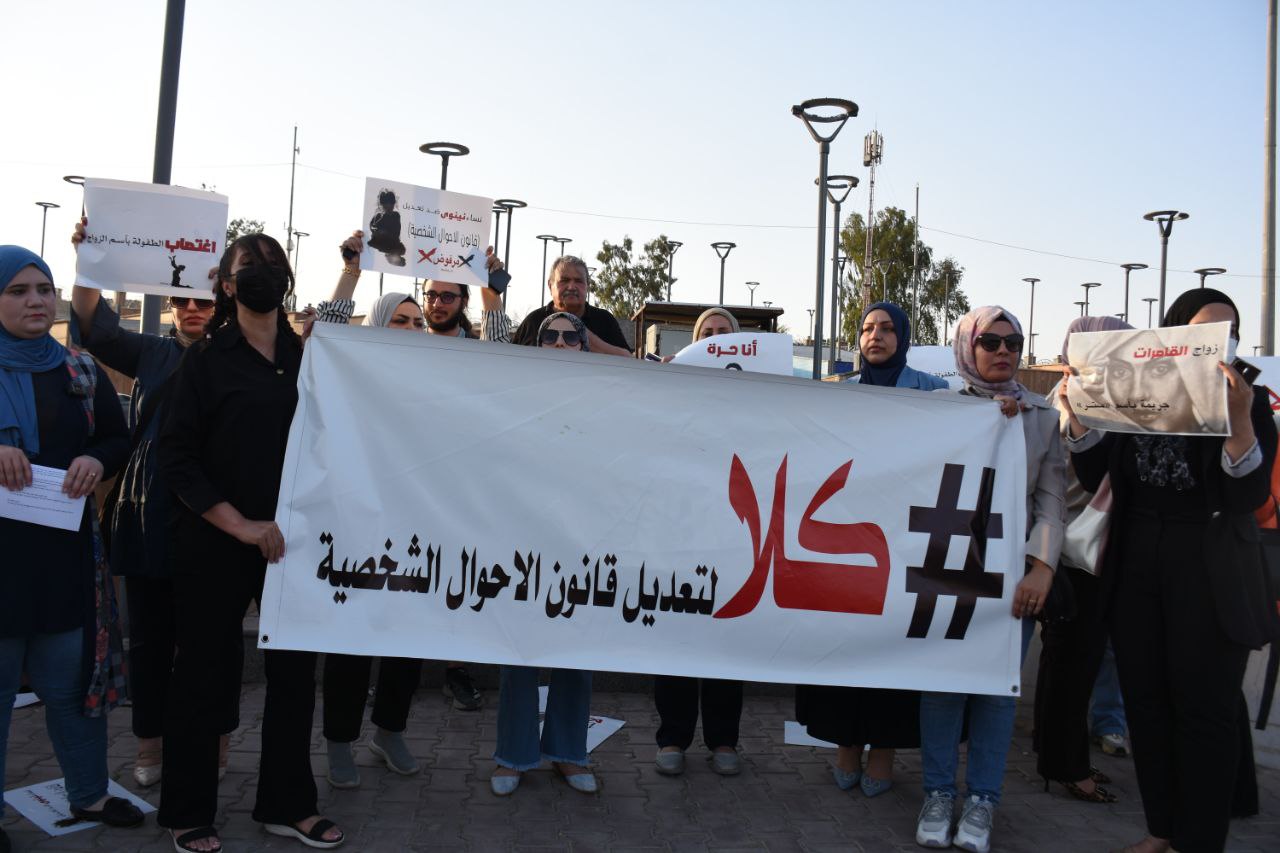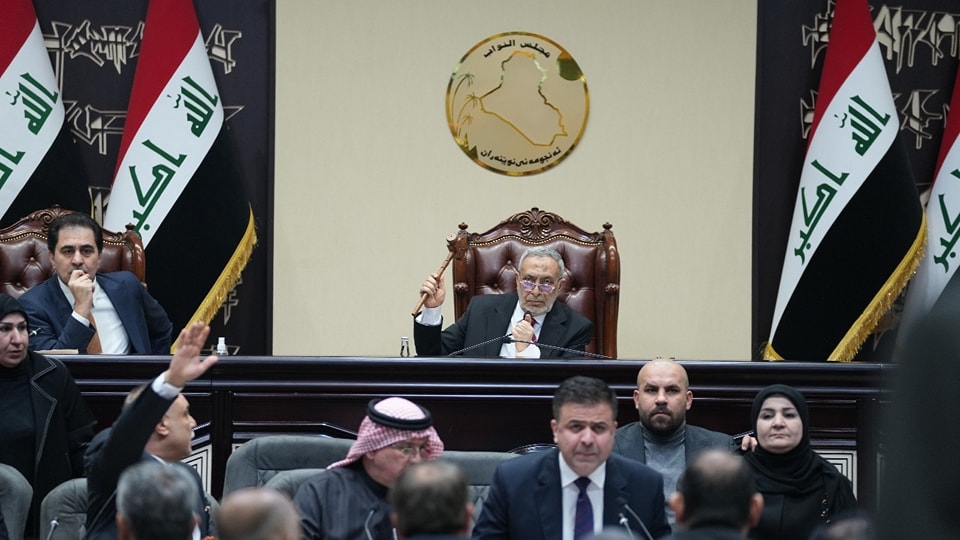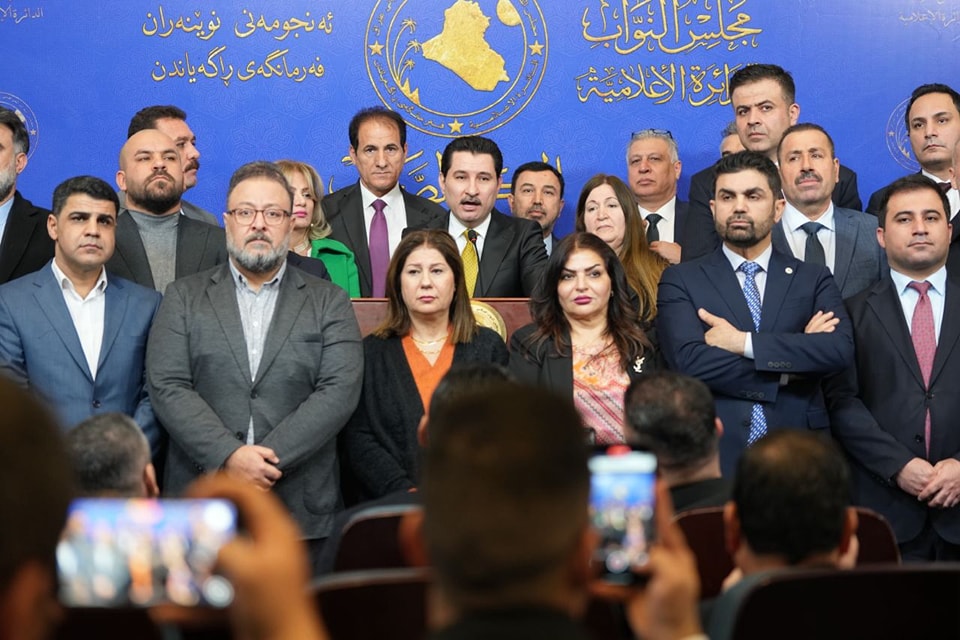The Iraqi parliament has passed three controversial laws and amendments in favor of the Shiite, Sunni, Kurdish and Turkmen communities.
On Tuesday, January 21, the Iraqi parliament voted on the amendments to the Personal Status Law, which were reviewed by the Legal, Women and Family Committees and sent to the speaker's office. This is with the support of all Shiite forces.
The statement of the session said the amendment is in line with the articles of the constitution. The amendment's first and second readings have sparked a wave of domestic and international protests in recent months.
Last year, the European Parliament called for the immediate rejection of proposed amendments to Iraq's 1959 Personal Status Law No. 188, which violates women's basic rights.
The text of the amendment is to amend both Articles 2 and 10 of the Personal Status Law, which aims to increase the reliance on the provisions of both Muslim Shiite and Sunni doctrines in marriage contracts, with the approval of out-of-court marriage contracts.
The key concern of women's and international organizations is that the proposed amendment would allow the marriage of girls as young as nine-years-old.

According to the amendment, a clause will be added to Article 2 of the law, in which spouses will be free to follow the provisions of the personal status law or the provisions of Shiite or Sunni religion in all matters related to personal status.
The record of Sharia judgment must be established by both Shiite and Sunni endowment offices in coordination with the Supreme Judicial Council, within six months of the implementation of the amendment, sent to parliament for approval.
The second item on the agenda was the adoption of the law on the return of seized lands to its owners, which is covered by the decisions of the dissolved leadership council (Ba'ath).
"It will play a role in strengthening social peace and restoring rights to their legitimate owners in Kirkuk and other parts of Iraq," Shakhawan Abdullah, Deputy Speaker, a Kurd, said.
The law, which consists of several articles and is related to the annulment of the decisions of the Revolutionary Leadership Council in the 1970s, will return the land in Kirkuk and several other areas, during the reign of Saddam Hussein in the 1970s.
In accordance with the decisions of the Supreme Revolutionary Council and the Northern Affairs Committee during the Baath Party's rule, agricultural lands of Kurdish and Turkmen farmers who had official contractors were given to Arab settlers from middle and south of Iraq as part of the process of Arabization and relocation of Kurdish and Turkmen families.
Confiscated agricultural land is one of the most complicated issues in the multi-ethnic, oil-rich Kirkuk province and other disputed territories, pending for 20 years. This has led to several clashes between Kurdish, Arab and Turkmen farmers.
According to the agenda of the Iraqi government led by Mohammed Shia Sudani, in an item on trying to pass legislation, refers to the cancellation of decisions of the Revolutionary Leadership Council of Saddam Hussein's regime, some of which relate to the disputed territories.

The third law passed by parliament was an amendment to the general amnesty law, as demanded by the majority of Sunni Arabs, which has been sought for years and was part of the agenda of the current Iraqi government.
Parliament Speaker Mahmoud Mashhadani congratulated the approval of the amnesty amendment in a statement, describing it as an important step for joint work and social justice, as well as a new gateway for those who have made mistakes in the past.
The amendment adds an explanation to paragraph 2 of Article 4 of the law, which states; "The crime of membership in terrorist organizations refers to anyone who works for terrorist organizations or arms people for them or commits criminal acts or in any way assists in the commission of terrorist acts or is on the register of terrorist organizations.
Article 4 of the Amnesty Law deals with those who are not subject to amnesty. The second paragraph, which is being amended, states that “terrorist crimes resulting in death or permanent disability are crimes of destruction of institutions state and fighting against the Iraqi armed forces and any terrorist crime committed with the assistance or incitement or agreement” is not covered by the amnesty.
The cabinet decided to prepare and send the draft amendment to parliament in July 2023, but the amendment last year sparked protests from Yazidis and other minorities in the Nineveh Plain, who suspected it would lead to the release of those involved in crimes against minorities.
Iraq has passed three amnesty laws since 2003, one in 2002, the other in 2008 and the last in 2016, one amended and this is the second amendment.





